Looming battle for Yemen's Marib city risks humanitarian disaster
- Published
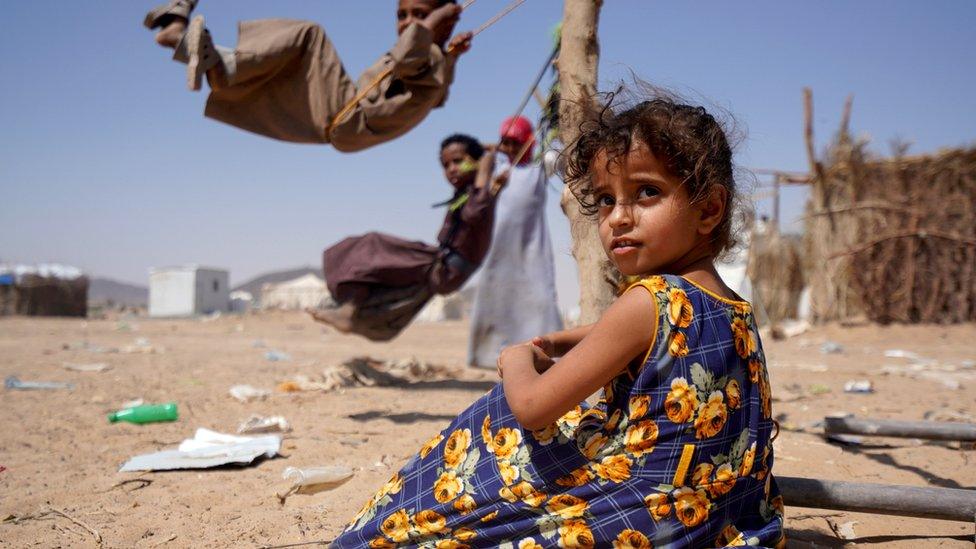
Over the past year, more than 140,000 people have been displaced by fighting west of Marib
Two Yemeni cities. Two offensives. Two crises.
And so far at least, two very different outcomes.
In mid-2018, Saudi-led forces supporting Yemen's internationally recognised government launched "Operation Golden Victory", aimed at dislodging rebel Houthi forces from the vital Red Sea port of Hudaydah.
The UN and aid agencies warned of a looming humanitarian disaster. Eighty per cent of all aid to Yemen passes through the port.
International pressure eventually resulted in a UN-backed ceasefire. By December 2018 the battle was over, the front lines frozen.
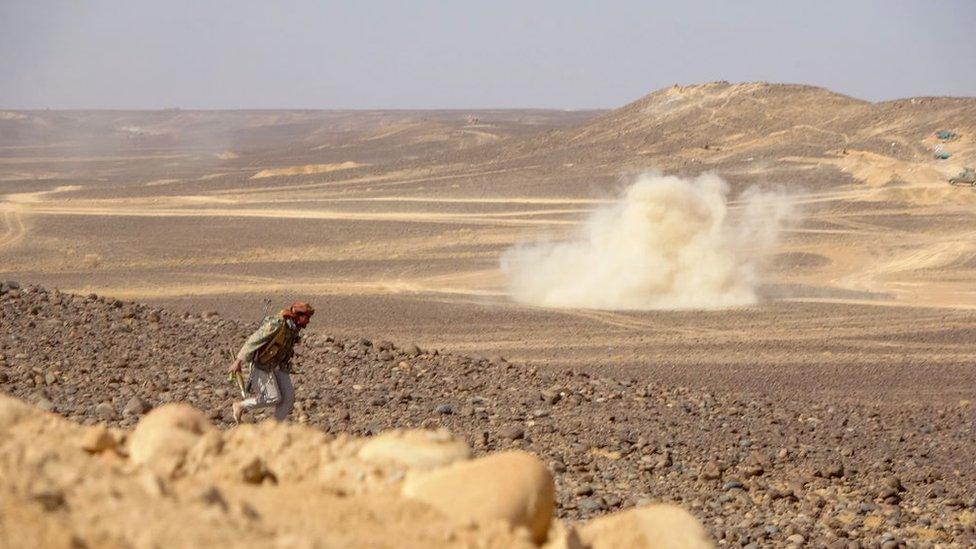
Hundreds of fighters from both sides have reportedly been killed in recent clashes
Skip forward two years, and cross Yemen's rugged mountains east to the desert city of Marib.
This time, it's the Houthi rebels on the offensive, against a city of different, but equal, importance.
Marib is the government's only stronghold in northern Yemen. It's also the capital of a one of the country's main oil-producing areas.
To lose Marib would represent a crushing setback for the government and its foreign backers.
Unlike Hudaydah, Marib's wartime significance is out of all proportion to its pre-war size and importance.
A dusty, forgotten provincial backwater before the conflict began, Marib has turned into a bustling metropolis, thanks in part to the arrival of hundreds of thousands of displaced Yemenis from other parts of the country.
(March 2019) Paul Adams visits the ancient Yemeni city where people escape civil war
When I visited two years ago, I found people from all over the country, living in scrappy camps dotted across the desert around the ancient city.
They were dispossessed. They all had stories of fleeing the war and the Houthis. But they were at least safe.
That's no longer the case, thanks to a rebel offensive that began a year ago and has made steady inroads into previously government-held territory.
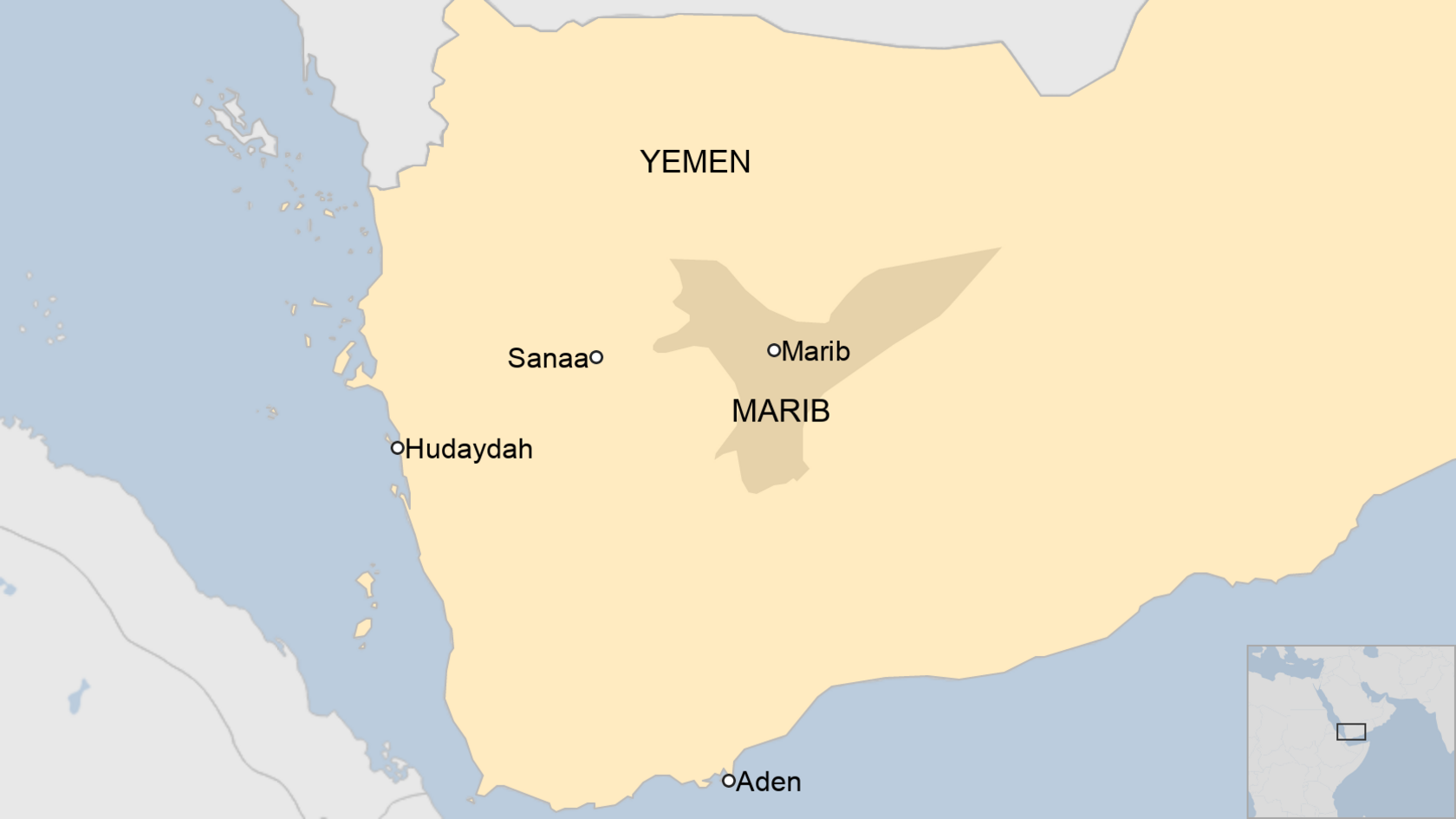
Two weeks ago, the fighting escalated as the Houthis launched an assault from three directions.
For the moment, the city remains safe, although government officials say a ballistic missile landed in the outskirts on 7 February, killing three people.
But out in the camps, closer to the front line, panic has set in.
Over the past year, more than 140,000 people have been displaced by fighting west of Marib, according to the International Organization for Migration (IOM).
As many as 10,000 have fled in the past two weeks alone. Most have sought shelter closer to the city, putting additional pressure on already stretched humanitarian resources.
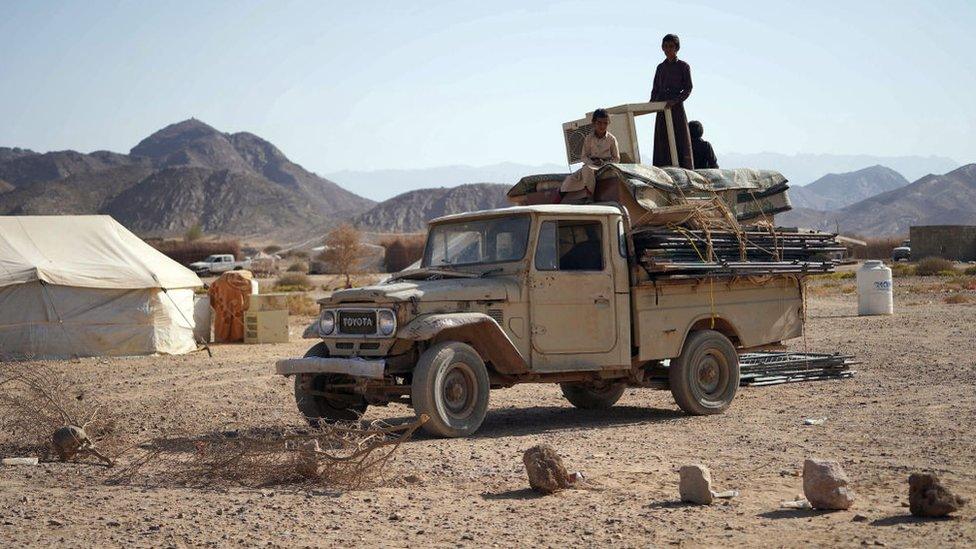
If fighting reaches Marib city's outskirts, hundreds of thousands of people may be displaced
"Should hostilities move towards the city and surrounding areas, it could displace another 385,000 people," the IOM said in a recent bulletin.
The UN has made several appeals for the fighting to stop, but the push towards Marib has yet to generate a concerted international response.
For some observers, the contrast with events three years ago is worrying.
"The international community used their leverage on the Saudis and the Yemeni government and they stopped the offensive in Hudaydah," says Nadwa al-Dawsari, a non-resident scholar at Washington's Middle East Institute.
"But the Houthis used that to regroup," she adds. "And now they're threatening Marib."
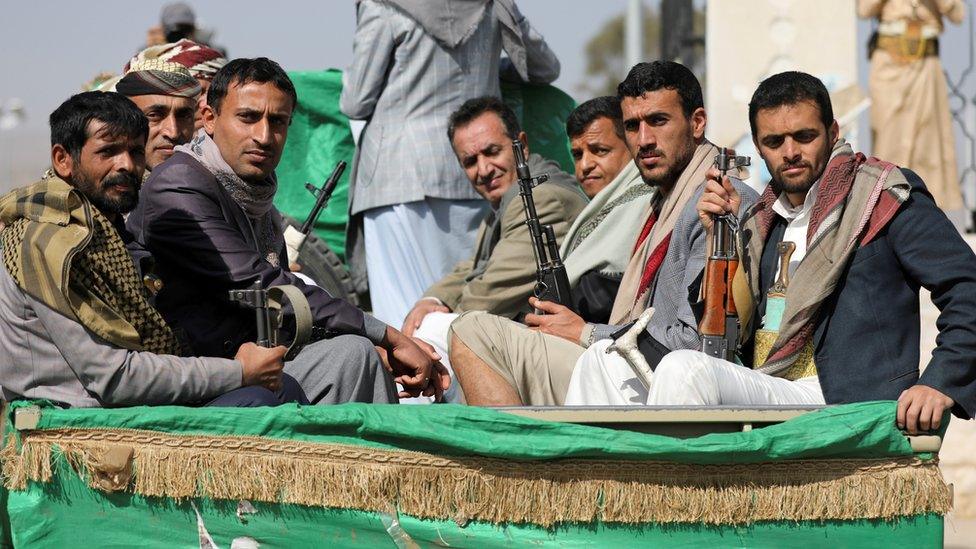
The Houthis escalated their offensive on Marib after the US ended its support of the Saudi-led coalition
Recent changes in US policy, she says, have not helped.
Within two weeks of taking office, President Joe Biden announced an end to US support for offensive operations by the Saudi-led coalition in Yemen, and revoked the Trump administration's designation of the Houthis as a "Foreign Terrorist Organisation" (FTO).
Within days, the Houthis escalated their offensive.
"It did embolden the Houthis," Nadwa al-Dawsari says.
The rationale for revoking the FTO designation was powerful. Aid agencies argued, as they did during the 2018 coalition assault on Hudaydah, that the impact on aid deliveries to the 70% of Yemenis living in areas under Houthi control could be catastrophic.
But dropping the designation without securing any concessions from the Houthis, some say, was a missed opportunity.
"If you're not serious about creating leverage with the Houthis, you're going to push Yemen further into conflict," says Baraa Shiban, a former adviser to the Yemeni embassy in London.
"This is my biggest fear with the approach of the Biden administration."
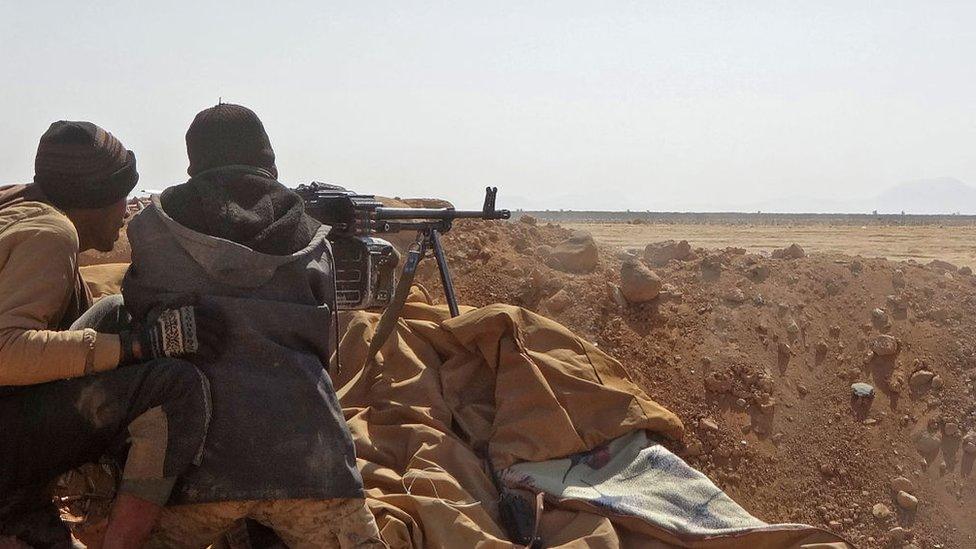
Marib is the government's only stronghold in northern Yemen
The other fear is that US policy is still being driven by regional concerns, not by an effort to understand why Yemen fell apart in the first place.
For Donald Trump, it was all about Iran. His administration spared no effort to highlight Tehran's support for the Houthis, turning a largely blind eye to civilian casualties caused by Washington's Saudi allies.
Now, it's Saudi Arabia that finds itself out of favour, while the Biden administration explores the chances of repairing the 2015 Iran nuclear deal, abandoned by Mr Trump.
"The one conversation we don't have is about Yemen itself," says Peter Salisbury, senior Yemen analyst at the International Crisis Group.
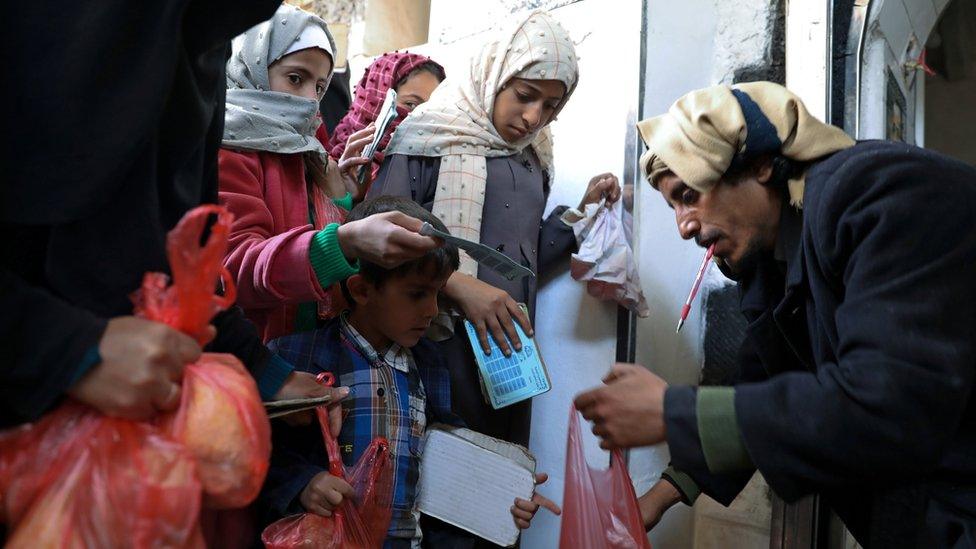
About 20 million people in Yemen require some form of humanitarian or protection assistance
He welcomes Mr Biden's decision to appoint an experienced Yemen expert, Timothy Lenderking, as US special envoy for Yemen, but says the administration has yet to articulate a new policy.
Focussing on Marib, he suggests, would be a good place to start.
"International actors must stave off a humanitarian disaster, external, as they did in Hudaydah," says the International Crisis Group's latest report.
"If outside powers fail to act to stop the fighting now, it will make any subsequent effort much more difficult, as Yemen falls ever deeper into the abyss."